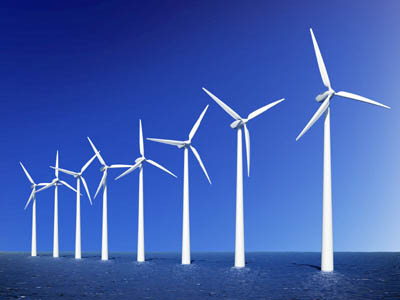Pat Rabbitte, TD, Minister for Communications, Energy and Natural Resources
“Ireland could export as much renewable energy as we consume ourselves” – these were the words of Energy Minister Pat Rabbitte, TD, who was speaking this morning in Dublin at the launch of the Government’s Strategy for Renewable Energy 2012-2020.
The new Government policy document covers Ireland’s renewable energy policy up to 2020. It contains 36 actions for the country to maximise the economic potential of renewables.
Specific actions include increasing onshore and offshore windfarm developments, as well as building a sustainable bioenergy sector. Other focal points include fostering R&D in renewables such as wave and tidal, growing sustainable transport and building out smart energy networks.
The strategy, which Rabbitte just signed off on this morning, also addresses the potential for exporting renewables to the UK.
Rabbitte said he will be meeting with UK Energy Minister Charles Hendry next month to carry out negotiations on an intergovernmental agreement.
He said such an energy agreement with the UK would mean that those involved in the generation of both onshore and offshore renewable energy in Ireland would have an additional market to serve.
Rabbitte spoke about Ireland’s scope to be a significant exporter of renewable energy.
“Given the scale of our wind resources, in the medium term we could be exporting wind energy on a scale that matches the total electricity consumption of the country,” he said.
“We use six to seven gigawatts ourselves each year and I believe we could be exporting the same quantum to the UK and beyond in the coming years.”
Speaking about the EU’s moves to decarbonise its energy systems, Rabbitte spoke about how there will be a “real demand” in Europe for carbon free electricity.
“Our coastal location gives us a real advantage in having natural resources of real scale and significance. Alongside moves to join together European energy markets, this will give us access to much bigger electricity markets in years to come,” he said.

Offshore windfarm
As for renewable energy technologies, Rabbitte spoke about the imperative to develop wind-energy facilities and the bioenergy sector to meet Ireland’s domestic renewable targets for electricity, heat and transport.
“By 2020 we aim that 40pc of our own electricity consumption will be green. That’s a target that we have agreed with the European Union but it is also a target we should embrace ourselves and aim to surpass if possible.”
Green jobs and energy security
He spoke about how such renewable energy adoption will help improve Ireland’s security of supply, as well as reducing CO2 emissions and creating “green jobs”.
“We cannot afford to allow challenges of grid build out, regulation or permitting to impede us in reaching the 2020 targets,” he said.
Rabbitte said he would be chairing a Renewable Energy Development Forum to track Ireland’s progress in the area and to iron out any issues that might delay developments.
Ireland already has a target to ensure that at least 16pc of all energy consumed in the country is from renewables by 2020. This includes a sub-target of 10pc in the transport sector.
Back in April, Rabbitte indicated that Ireland had moved from a position of 5pc renewable energy usage in 2005 to reach a take-up of around 18pc in 2012.